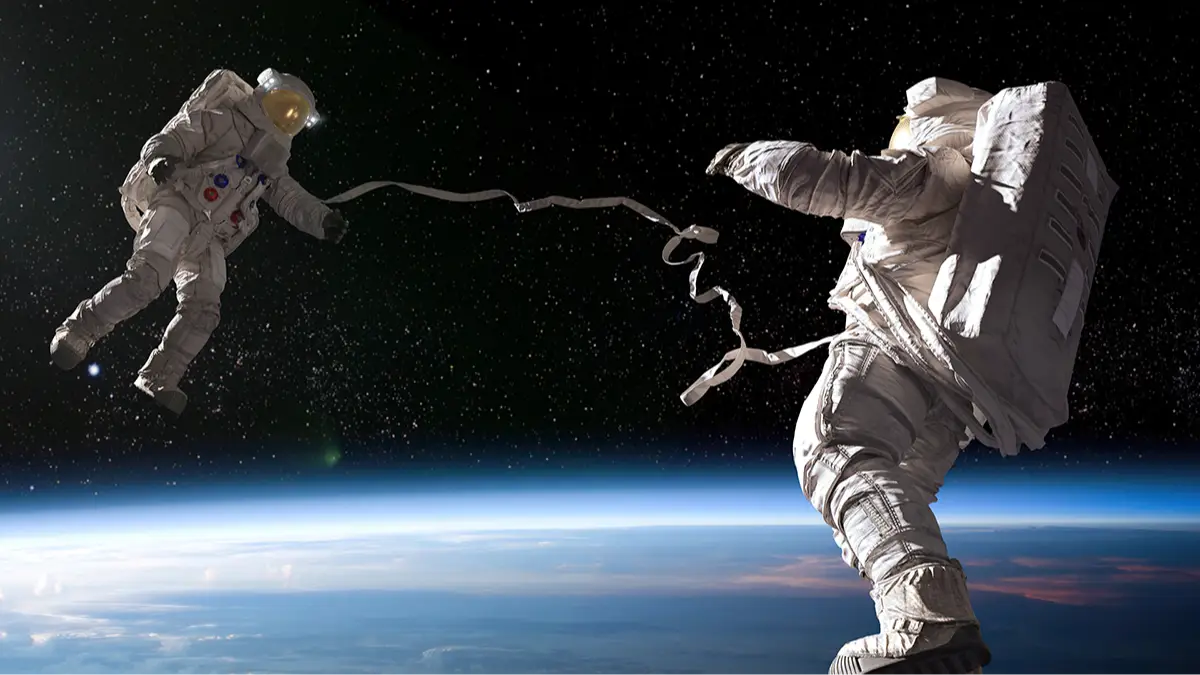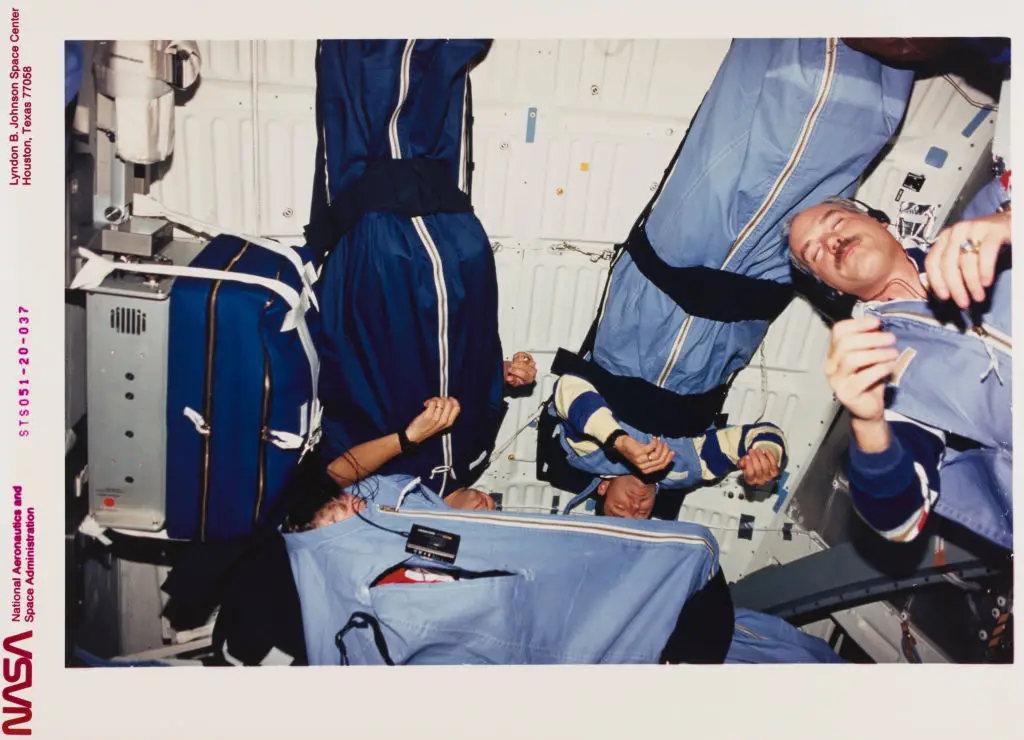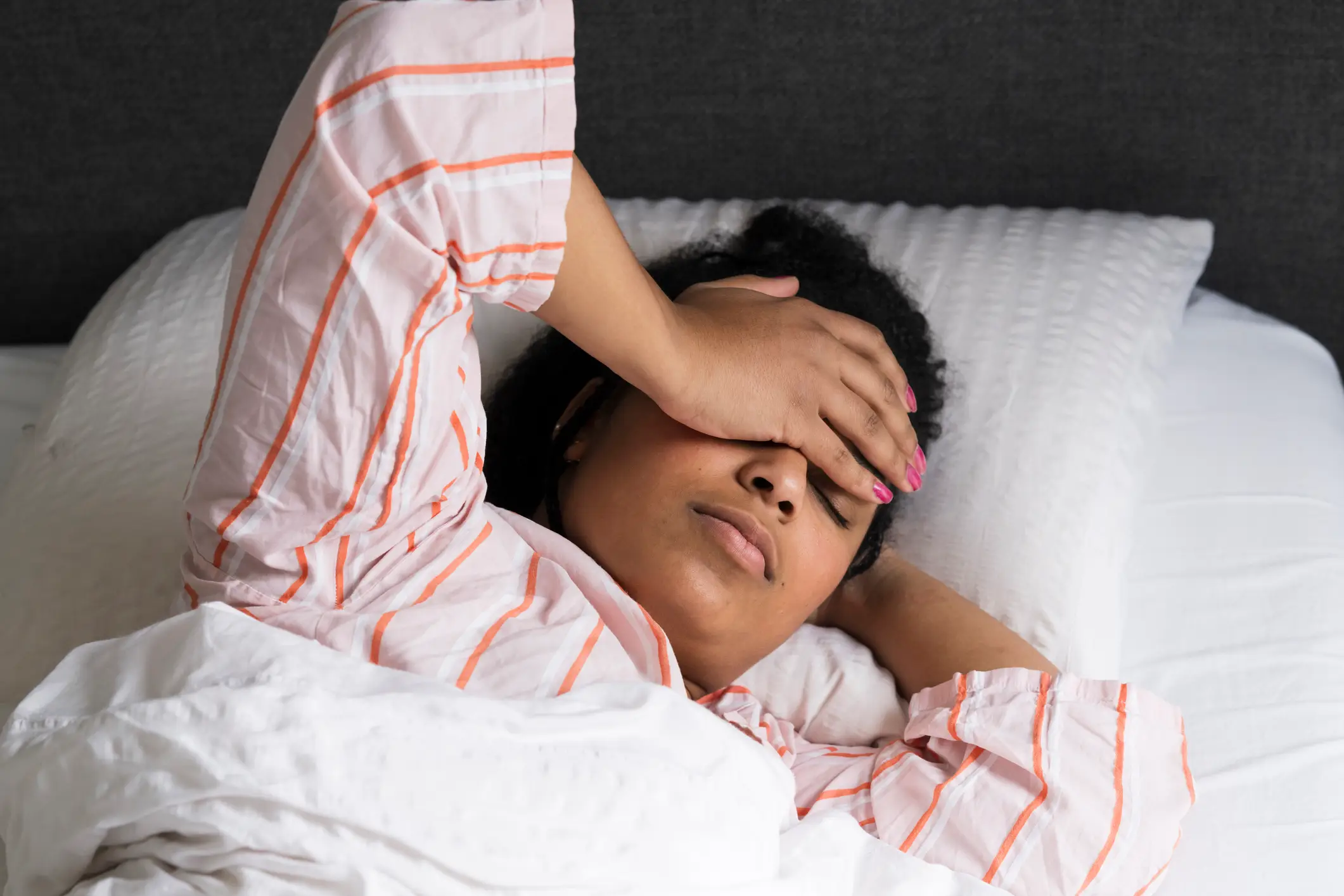
Sleep is a vital part of our lives; get too little of it, and you'll be feeling the repercussions for a while.
Regularly failing to get adequate sleep could lead to long-term health issues, including heart disease, diabetes and metal health problems.
But there are times where we can't always nod off as easily as we'd wish - like going on vacation.
If the thought of sleeping on a long-haul flight is enough to make you feel restless, then imagine trying to get some shut-eye up in space.
Advert
It's a challenge hundreds of astronauts have had to face - particularly those working stints on the International Space Station (ISS) for months at a time.
As you can imagine, in space, bedtime is anything but normal.
“In microgravity, astronauts don’t have the sensation of lying in bed with a cover applying pressure. They just float around,” NASA researcher Rachel Jansen told the Washington Post.
Astronauts anchor themselves to a wall or sleep pod, often with arms floating zombie-like in front of them unless strapped down.
Each crew member is given access to private sleeping quarters, which include improved light and temperature controls; crucial for promoting healthy sleep. However, astronauts face a unique challenge: the ISS orbits Earth every 90 minutes, meaning they witness 16 sunrises and sunsets a day.
“That plays havoc with circadian rhythms,” Jansen said.

To counter this, NASA upgraded the ISS’s lighting system to simulate a more Earth-like day-night cycle.
Sleep isn’t just a matter of comfort, either - it's vital to astronaut's safety and a lack of it could see 'devastating' consequences.
Erin Flynn-Evans, a NASA scientist studying spaceflight fatigue, explained that sleep-deprived astronauts could risk high-stakes experiments - or even their own lives.
"We have scientists who send experiments to the space station, so, for example, our astronauts may have to pipette substances into tubes at different times of day.
"If they make a mistake, they may not have any way to recover the experiment, and that could be devastating to a researcher here on Earth," Flynn-Evans said.
More dangerously, poor sleep has been linked to major spaceflight accidents.
A 1997 collision on the Russian space station Mir was partially attributed to a sleep-deprived crew member operating a robotic arm.

The National Institute of Health explains that chronic sleep deprivation impairs memory, slows reaction time, weakens immune function and reduces decision-making capacity - all of which could be deadly here on Earth, let alone in space.
NASA’s current protocol allows for an 8.5-hour sleep window per 24-hour cycle. Astronauts are encouraged to dim lights before bed and use sleep aids like eye masks and sound-muffling devices.
Fatigue management programs and scheduled rest periods help ensure crew members are at their sharpest when it matters most.
Still, the challenge is ongoing.
“Living in space disrupts everything we know about normal human cycles,” said Jansen. “But it’s our job to help them adapt - because one bad night’s sleep can cost more than just grogginess.”
Topics: Space, Sleep, NASA, International Space Station, Health, Science